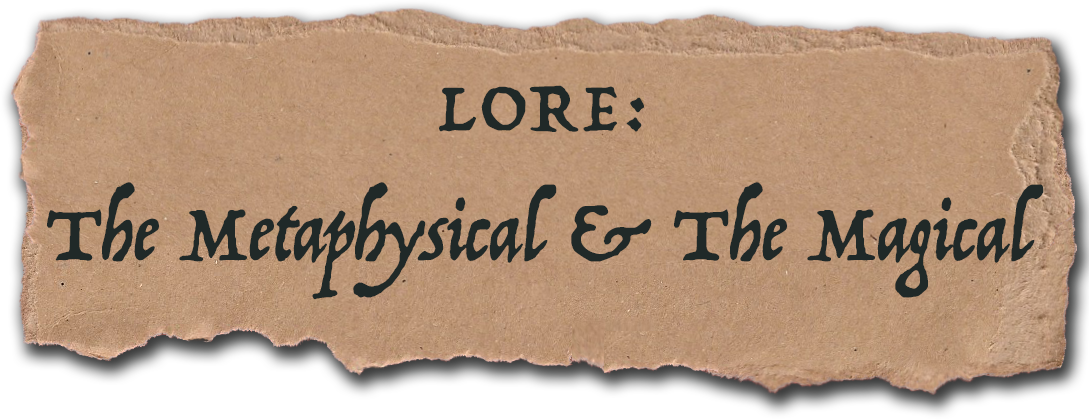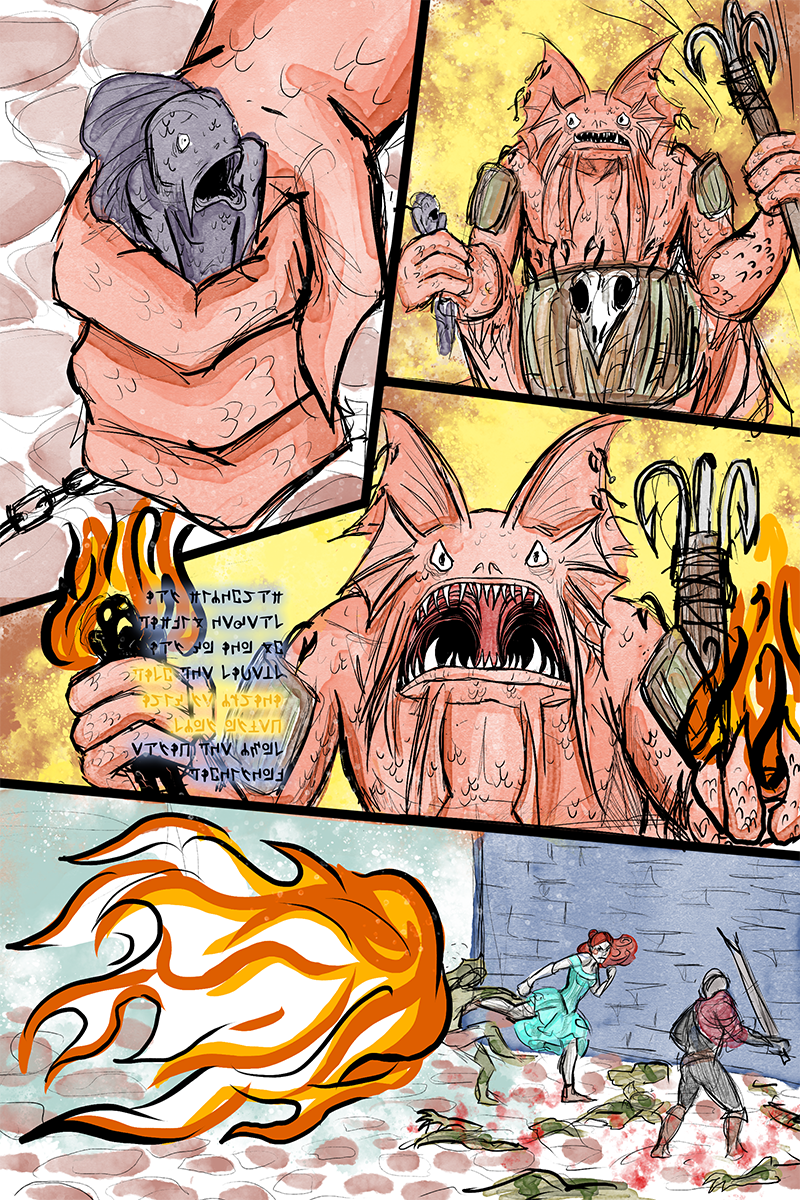
The Story
In the same way our world is made up of atoms and molecules, Middle Earth is made from Illuvatar’s Song, The Wheel of Time has The Pattern, similarly The Wylder is made up of words and sentences weaving together to tell The Story.
This is general knowledge and viewed similarly as we do quantum physics; a neat thing with crazy implications that we generally entertain and then leave to the scientists to figure out.
Common sayings include things like:
- ’Tell a good/fun/honorable/long/etc. Story’
- ‘Your tale will end right now if you don’t unhand me drink’
Magic
If The Wylder is made up of a giant story, magic is literally the rewriting that story. Depending on various factors beings within The Wylder can actively affect their part of The Story, resulting in what we would call magic. I’ll sum up it’s generalities below, just keep in mind none of this practically matters for the stream.
We’ll be using the standard 5e system, (with some small edits), for the audience’s sake.
'The Story' does not like to be rewritten, and can defend itself in a variety of ways, most notably a mana blowback system. Casting spells usually requires a level of manaburn on the user so to speak.
Here's some examples:
Those runes are the literal words to The Story being rewritten, but that's just one way to interact with The Story, (also the most common since it's Fe based, and most Toy/Fomorian magic is Fe based).
Other cultures have different ways of interacting with it, either through song, dance, etc.
Magic is essentially 3 elements:
Your skill to decipher/alter The Story
Mastering the way you interact with it, (being fluent in it's runes, or it's tone, etc.)
Your ability to impart your intent, (willpower)
This also is the narrative reason why martial classes keep pace power-level wise with magic users, their willpower literally edits The Story to their intent.
Your nature
The extent to which a being and their intent align, i.e. an empathetic person will have more success with healing magicks than they will with destructive. (Basically, it's easier to cast spells that vibe with you.)

High level wizards with a balance of those elements can cast spells and barely get pinched.
In contrast, low level apprentices can lose a finger (or worse).
(So for example, in the comic when Betha casts magic, one could decipher the runes and find out she's writing like an idiot. 'And so Betha knelt down next to Sonn- HEAL GOOD LEG HEAL - both recoiling in pain ', etc.)
She is not good at Editing, she isn’t confident in her ability, and it isn’t in her nature to mend anymore.
Different ‘Schools’ of magic are called Genres:
Genre’s are created when a concerted effort is made by a large or skilled enough people over a long enough time period to introduce a more nuanced way of interpretation.
Essentially writing a game engine out of code, it’s a restructuring of the way the code is used and read.
The only ‘School’ that doesn’t have a Genre in The Wylder is Illusion, so please stay away from this if you can!
Magic users in this part of Mag na Mell are rare; both of the major societies do not have a favorable opinion of the art.
Magic items are very rare, most are made by forging runes into an item that lasts only as long as the runes do. Permanently enchanted items are extremely rare.
Sacrifice
One of the oldest and most powerful practices that humanity has steeped the Wylder in is the act of sacrifice. Some of our oldest belief structures taught that our reality is something that can be bargained with, that we could broker the present for the future by sacrificing resources, animals, and even other humans. These beliefs had a profound effect within the Wylder, particularly when it comes to Magick.
The Story, as a rule, does not appreciate being rewritten, and any gaps between an Editor’s skill, ability to convey their intent, and their super-ego harmony will be filled with a sacrifice from the user. And the greater the sacrifice, the greater the effect. Whether it be an offering made in the moment, or the loss of flesh, The Story cares not. It is therefore unfortunately common to see Editors in various states of disrepair, often missing eyes, fingers, or even multiple limbs, as they pit their ambitions against their capacity.





